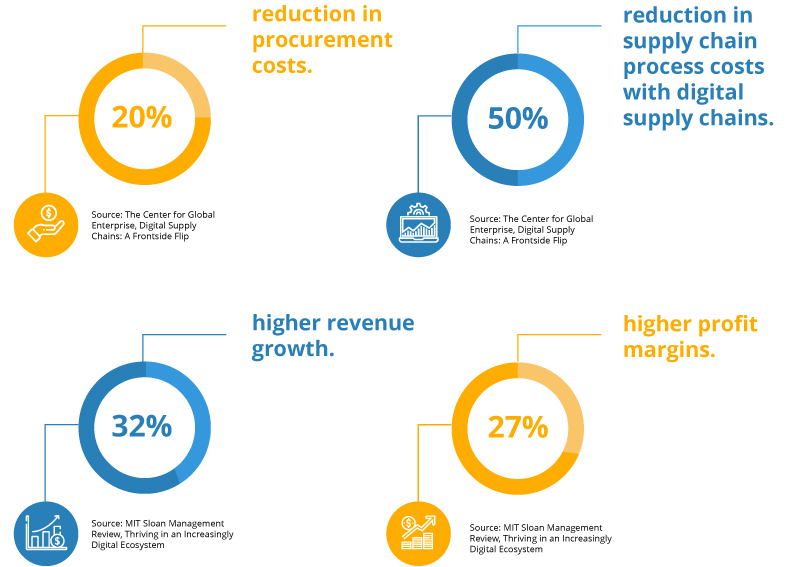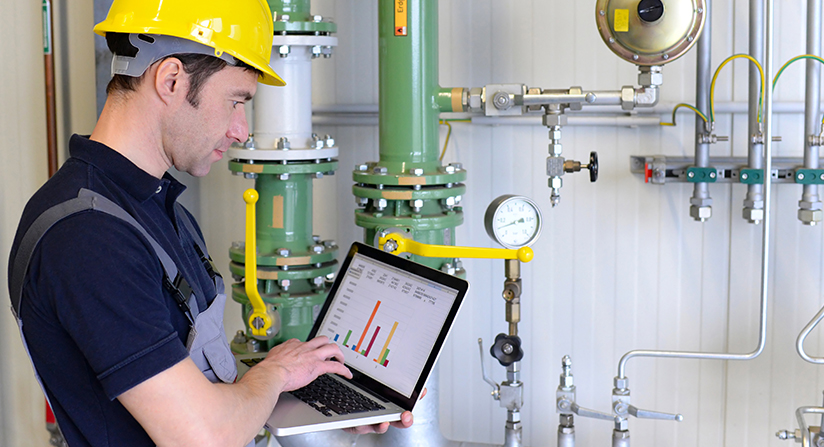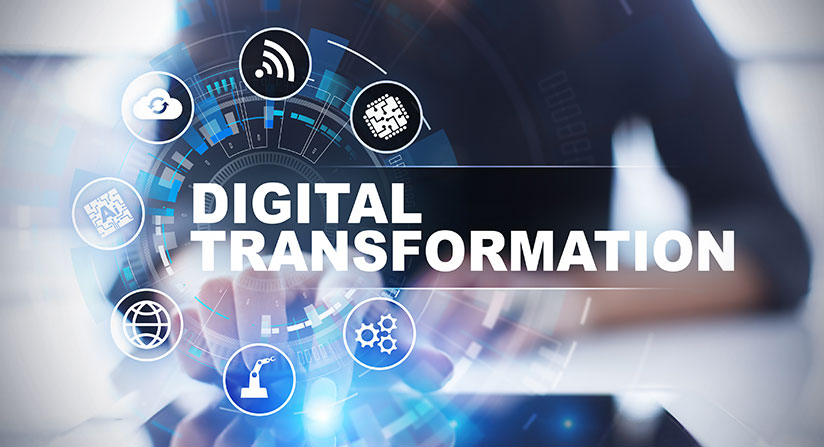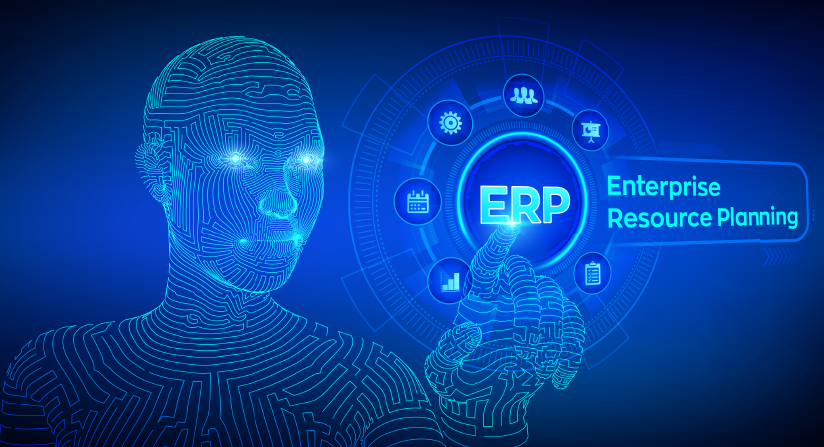The OptiProERP team is constantly reading and sharing industry articles so we can point out those of particular value to you.
This piece from SAP, “The Definitive Guide to Value Creation with Intelligent Cloud ERP,” is an informative read and well worth your time. Here’s why.
Value Creation Defined
The guide starts with a clear definition of value creation, which is: the ability of the organization to produce and deliver high-quality goods or services to customers in the most efficient way.
Intelligent Cloud ERP Drives Real Business Results
Companies with 50% or more of their revenue from digital ecosystems experience remarkable results.

The Relevance of Value Creation for Small and Mid-sized Manufacturing Companies
Value creation begins with the ability to drive waste out of the organization. Intelligent cloud ERP enables waste reduction across the enterprise. For our purposes, let’s focus on waste reduction on the shop floor through the lens of inventory management.
- Inventory optimization reduces carrying costs associated with overstocking.
- Min/max safety stock alerts prevent production delays due to insufficient materials.
- ERP global procurement enables the consolidation of material purchases across multiple locations to garner volume discounts.
But value creation is far more than simply eliminating waste from manufacturing processes. It is an opportunity to be more competitive in a global marketplace and to be extraordinarily responsive to customers. Above all, value creation is about access to essential data that inform sound business decisions.
Intelligent cloud ERP (iERP) enables businesses to leverage digital capabilities like automation, collaboration, and real-time visibility, all from a single source of data. By embracing cloud technology, manufacturers can create lasting value and long-term profitability on a platform that supports growth and enables advanced technologies like artificial intelligence (AI), the Internet of Things (IoT), machine learning, and more. Let’s take a closer look at the four steps towards value creation in manufacturing.
1. ANALYZE
With a single source of truth, your team can save time spent on collecting and analyzing data pulled from multiple sources. Cloud ERP for manufacturing enables every user with a role-based cockpit, populated with KPIs, analytics, and reports relevant to their job. By enabling workers with information focused on their particular job responsibilities, Cloud ERP enhances business performance, improves collaboration within the organization, and drives value creation.
It is how you combine digital capabilities with the right data into end-to-end solutions that enable innovation and business outcomes.
– Aidan Quilligan, Global Industry X.0 Lead – Accenture
2. OPTIMIZE
Research from leading industry analyst Forrester Consulting finds that intelligent technologies are critical for supporting digital transformation in an enterprise.
With iERP’s assistive and personalized user interfaces, businesses can optimize the performance of people and the machines they use. ERP replaces complex and disconnected manual processes with the automation of repetitive processes that reduce the rate of human error, enabling workers to spend their time doing work of greater value to the enterprise.
Automation enables the mirroring of processes. For example, once a sales quote in the ERP software is approved, it automatically populates the sales order. Information from the sales order pre-populates the bill of materials (BOM). The same data informs material resource planning (MRP) and master production scheduling (MPS) so that all of your procurement schedules are in lockstep with your manufacturing or assembly schedules.
3. STRATEGIZE
Intelligent ERP software helps you predict what your customers want by analyzing market dynamics. With real-time data collection, reporting, and analytics, management can make smart business decisions.
For example, to anticipate lead time for a customer’s demand, you need to forecast it to see if you will have inventory stock available within the demand time frame. Intelligent forecasting generates a forecast with a hindcast, meaning that it factors in things like past demand, which you can then use to forward forecast with greater accuracy. Forecasting with intelligent ERP gives you a more informed, accurate forecast so you can run a more profitable shop floor, drive waste out of your operations, and meet or even exceed your customers’ expectations.
4. DISRUPT
Digital disruption happens when digital technologies and new business models emerge in the marketplace. Technology disruption impacts existing processes, products produced, and even services offered.
More and more manufacturing companies are turning to the Chief Financial Officer (CFO) as the leader of digital initiatives from Artificial Intelligence (AI), Internet of Things (IoT), 3D Printing, Blockchain Technology, Robotics, and more.
Finance leaders are already tasked to provide their colleagues and investors with insight and guidance. Based upon their broad access to financial data and their ability to provide related analysis, finance leaders are adept with a variety of financial models to evaluate business decisions. With iERP, CFOs have access to historical and current sales data and profit trends. They can model a cash flow scenario with real-time data and leverage the intelligence to inform and improve corporate performance.
With disruptive business changes across organizations becoming more commonplace, finance leaders are tasked with staying on top of the digital transformation dynamic. At the end of the day, it is the finance team that ensures that staff and bills are paid and that revenue is adequate to meet those needs. With this in mind, finance leaders are adopting “intelligent” technologies to meet quickly evolving business needs, such as creating new revenue streams, improving business agility, and responding to competitive threats.
Meet Customer Expectations with End-To-End Enterprise Resource Planning
If, as a business owner, you believe that the customer is king, then you should leave no stone unturned to create a seamless, simple experience when delivering your product. Your customers’ satisfaction depends on far more than prompt delivery and excellent quality goods or services. It depends upon your ability to be responsive to rush requests, to provide real-time visibility into production processes, and to offer e-commerce options that enable customer self-selection of product features and options.
The ability to create value that customers are more than willing to pay for begins with the use of intelligent cloud ERP software. Click here to read the original article. If you would like to know more about the capabilities of intelligent ERP, please contact us. Or, if you’d like an answer to the questions, What is Manufacturing ERP and What is the Business Value of ERP, we are here to help.
Follow Us




